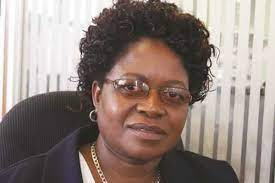
PETROZIM Line, the State-controlled firm that operates the 208 kilometre Feruka-Harare oil pipeline, has defaulted in servicing a £10 million loan extended by a United Kingdom-based lender about 30 years ago, burning substantial amounts in penalties.
Official reports showed yesterday that the firm had settled most of the principal amount but has defaulted on the final £600 000 since 2002.
In report for the year ended December 31, 2020, released on Tuesday, auditor-general Mildred Chiri warned that more public funds could be wasted unless the firm moves to clear the debt.
Chiri was also concerned by several issues around PetroZim, including its board composition and flouting of accounting standards.
The firm, which is a unit of National Oil Infrastructure Company of Zimbabwe executes its mandate through the multi-product fuel pipeline that stretches from Mutare to Harare.
Chiri said there was no evidence the oil operation had a payment plan for the loan.
But management argued efforts towards servicing it had been stifled by a foreign currency crunch in Zimbabwe.
“The company was not adhering to the terms and conditions of its outstanding loan balance as stipulated in the loan agreement,” Chiri said in a commentary.
- Sakunda hail SA stadia tour
- Rufaro Stadium refurb gathers momentum
- Huge incentives for DeMbare, Bosso
- Chiri vows to stop looting
Keep Reading
“As a result, it was charged penalties which amounted to £29 593 at year-end. I was not availed with a payment plan that had been agreed with the creditor. Risk/implication (would be) financial loss due to penalties and interests,” the auditor-general said.
“The company should consider to adhere to the terms and conditions of the loan contracts in order to avoid penalties and interests being levied for breaching loan contracts,” she added.
In response, Petrozim Line management acknowledged the default, but blamed the liquidity crisis.
“The company has an outstanding construction loan of £1 121 704 being the principal of £1 092 110 and penalties of £29 593,” the firm’s management said.
“Foreign UK Bank provided a total facility of £10 099 635. Repayments were due bi-annually from March 1994 in amounts of £631 230 with the last repayment payable in September 2002. The company defaulted on the last instalment of £631 230 and a portion of the penultimate instalment of £460 880 due to foreign currency shortages in Zimbabwe.
“The loan is guaranteed by the government of Zimbabwe and accrues interest at 9,2% per annum.”
Chiri said she was concerned about weaknesses in the firm’s procurement processes.
“There was no evidence to support that the company’s procuring unit and the finance department were timeously reconciling the prepayments account to subsequent delivery made,” she said.
“As a result, items delivered were still treated as non-delivery and the amounts remained in the prepayment account. This was the case of an advance payment for isolation joints in 2014 which was subsequently delivered on May 13, 2019 but was still under prepayments.
“In addition, the procuring unit was contracting suppliers who failed to deliver. Upon enquiry with management it was revealed that goods remained undelivered as some suppliers were failing to deliver items paid for in advance.
“This was the case for a temperature transmitter purchase for which the supplier was paid in 2016 and a laptop payment in August 2019 which the supplier failed to deliver and the case was before the police.
“The composition of the company’s board of directors had not met the gender equality provided for in Zimbabwe’s Constitution and Public Entities Corporate Governance Act as the board had one female and four male members. Gender programmes may not be effectively appraised at board level.”
- Follow Harriet on Twitter @harrietchikand1










